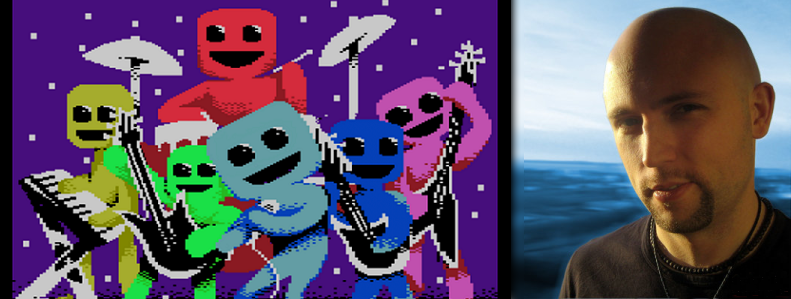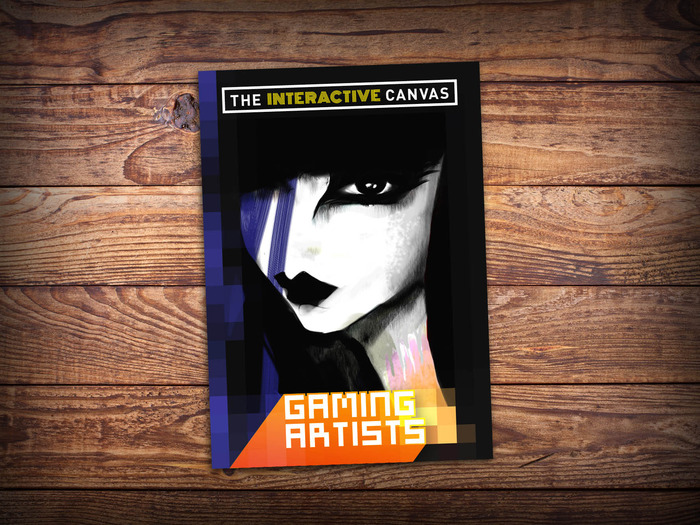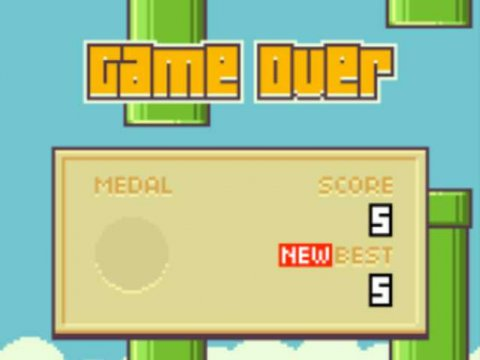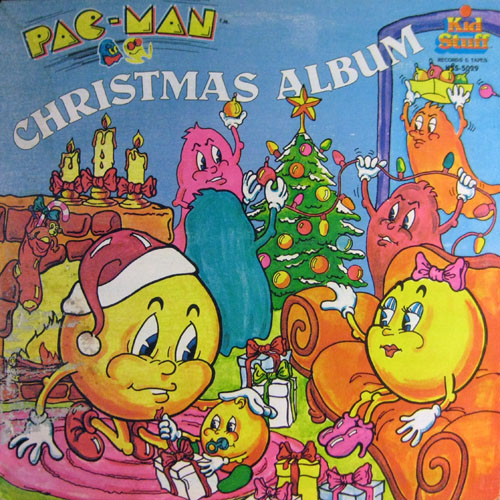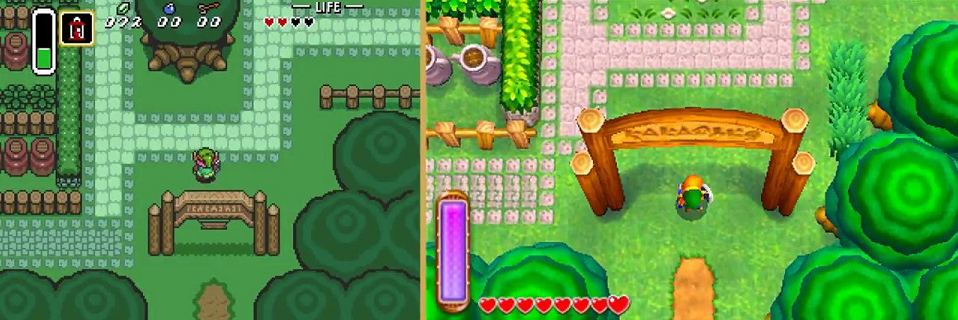A while back I reached out to Magnus Pålsson, better known as SoulEye, and best known for composing the stellar soundtrack of VVVVVV. He had just released a metal remix of that game’s soundtrack, MMMMMM and he quickly consented to an interview to help promote it.
Great! …except that when my computer crashed soon afterward, I thought I lost the draft. Only recently did I find it, and it might have been a stroke of good timing, since Pålsson had some technical difficulties with his web-host that prevented anyone from purchasing the album until now. So, while the delay wasn’t deliberate, I’m happy to be able to finally post the interview at a time when you can actually buy the album!
(Also, on a personal note, I can highly recommend Adventure. It’s absolutely incredible, and has been on permanent rotation for me.)
1) How did you originally get involved with Terry Cavanagh? How did your contribution to VVVVVV come about?
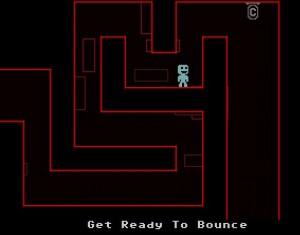 First of all, thank you for having me on here on this excellent site for an interview! It’s my pleasure to answer your questions.
First of all, thank you for having me on here on this excellent site for an interview! It’s my pleasure to answer your questions.
I had put up some of my music for free download online, and one of Terry’s friends named Charlie asked me if he could use one of my songs for his game. I said sure, as long as I can have a copy of the game when it’s done.
He came back a month later and gave me a copy. The game turned out to be a shoot-em-up where you play a severed dog’s head, raining hot death on evil attacking space-penises that attack you with semen. That game is spunky. It’s called Space Phallus if you want to play it.
Anyway, Terry naturally played Charlie’s game, and liked the song I had provided. (The song is “Retro Tune” and can be found as track number four on my album “S” here.) He emailed me and asked if I wanted to make music for his (then-supposed-to-be) free game called VVVVVV.
I thought it was a great idea, since I’ve loved games all my life, so I was happy to make a songs for the game.
2) How much guidance were you given in terms of your work on the soundtrack? Any specific atmosphere or tempo to reach for?
I got a beta copy of the game. It was using an old c64 placeholder song, but I was largely given free reign. Instructions were limited to just a few adjectives. He would give me the beta, I would play it, and then think, “What does the ideal platformer song sound like in my head?” And then I produced “Pushing Onwards.”
Terry put “Pushing Onwards” into the updated beta, and got inspired by the song so much that he created a new level. And then he needed more music! So I made “Positive Force.”
And then he had that one on loop for days on end, and made another level. And so it went on. We inspired each other, like a symbiotic relationship designed to evolve the game.
At a certain point, I felt there was enough good stuff in there, but I wanted a masterpiece in there, that would stand out for a long time. And thus, “Potential for Anything” was dreamed up.
I cut out entire sections after writing these songs until I got everything “just right.” It took almost a month to complete because of all the structures, details and harmonic intricacies that went into it.
3) I’m not sure I’ve ever read a review of VVVVVV that doesn’t specifically praise the music. Why do you feel it’s stood out to players in a way that few soundtracks have?
I am entirely self-taught when it comes to music, for good and bad. Many people come to me and ask what programs I use, how I get inspired, how to be creative. Sometimes, those who have the hardest time being creative are those who have been taught in various educations that there is a right way and a wrong way to create music. That you should follow a certain structure, follow the rules, and if you don’t do it right, you shouldn’t be in the business of making music.
Of course, this isn’t always the case, and most educations are great. This is not about saying education is bad. And I have a point to make. It’s that if you believe someone when they say that kind of stuff to you, you might unconsciously put a lid on the very thing that made you want to go into music in the first place: your own soul’s unique voice.
For me, music is an expression of my inner life. It’s a way of sharing myself to the world, how I feel. The music I write is therefore “true,” in the felt sense of the word. There have been few places where I’ve forced myself to make music in a certain way. This intuitive way of writing music has also made me make music only when I feel like it. Typically, I like to write music when I’m feeling really good, happy and enthusiastic. If I’m not, the music reflects that.
Given the above, consider that the songs in VVVVVV were written from my heart. They were made without any thoughts on profits, career in music, fans, recognition, future travels, and so on. They were made for the sheer joy of it all. No agenda. All the things that happened later were really unexpected.
4) What was the first album you ever owned?
It was Hey Stoopid (released in 1991) by Alice Cooper. I remember buying it because I liked the music and a part of me thought I became cooler just by owning it.
I would listen to it a few times, but not obsessively. At that point I had no plans for making music. I was just enjoying it. I remember being fascinated how one track was produced so that it naturally flowed into the next at one point. I would hear the click sound when the CD player changed tracks, and keep the same synths playing.
It’s a good album even today, but Alice himself was never my biggest influence. The most enjoyable thing on there was, as I think back to it, was Slash and his masterful play on the guitars.
5) What was the first video game whose soundtrack really grabbed you?
Wizball on Commodore 64. The first minute of Martin Galway’s title track is a stroke of genius.
It made me feel like I was tapping into something magical. Like…welcome to the world of wonders, where anything is possible. I had my C64 hooked up to my parents’ old TV, and its crappy mono-speaker (by today’s standards) was, for once, producing something clear, beautiful, new, and real.
I felt exhilarated by it, and wanted the world to know this feeling, this music, and have the same experience I was having. And my teenage self didn’t give an F. I opened the door to the garden, turned up the music, and hoped the neighborhood would rejoice in this wonderful new discovery of mine, that surely would make all those grumpy grownups a reason to put a smile on their faces. But the only result was my mom telling me to shut it off.
I’m happy to report that by now, my now 67-year old mom likes chiptune music. Well, mine at least. There are a few tracks she plays over and over at her house.
6) What was the first film whose soundtrack really grabbed you? How did it make you feel?
The truth is that I was never aware of being really grabbed by a film soundtrack. The only thing that comes up when I think of early movies with good music is Star Wars (1977). I was still in daycare when I saw that movie, and I didn’t completely get what was going on. The appreciation for that music came later on.
I saw an orchestra playing Star Wars music in my home town of Helsingborg a while back. That was an amazing experience. They played it so true to the originals, but the fidelity and quality of the raw vibrations of the different instruments resonating in my body is something I won’t forget easily.
7) MMMMMM is a complete reimagining of the VVVVVV soundtrack with live instruments in a very different style. What sparked this project? How did you come to collaborate with FamilyJules7x?
FamilyJules7x has a long history of covering game music soundtracks. I remember seeing him do a Super Meat Boy medley, and thought, “that’s cool, I wonder what my music would sound like there,” and a seed was firmly planted in me. Given half a chance, I would make it happen.
But I went on my merry way, and didn’t think of it until way later, when, one day, this subconscious dream was realized, and he made a medley of the VVVVVV music, presumably after a number of requests from his listeners. Or, as he put it: “VVVVVV‘s soundtrack is a work of genius and it’s a crime that I haven’t had a go at these songs earlier.”
Anyway, after popping all my gaskets while listening to that, I wanted to make a full remix album a reality, if nothing else, then for my very own listening pleasure. So I just emailed him and we worked it out. It was one of those “this is right; this needs to be done,” kinds of moments, where my guts had a stronger say than my brains.
I love those moments.
8) Explain “Plenary.” This was a track composed for the game, but which wasn’t ultimately featured, to my knowledge. Where was it meant to have gone?
Allow me to enlighten you. The name “Plenary” means “an adjective related to the noun plenum carrying a general connotation of fullness.”
The track which sounds like this in its original form ) is actually in the game but perhaps not heard very often, since it only plays once, when you complete VVVVVV. Am I to take it you haven’t completed the game?
It was a blast creating this jingle. It has a whole slew of intermingling leads, creating a pompous (in the good sense) fanfare that is fitting of a game complete stinger.
[ed: Believe me, I completed the game! I actually meant “Phear,” not “Plenary.” Magnus was kind enough to explain that track, too, once I’d had my mistake pointed out to me.]
“Phear” was a “song” (it’s more of a sound effect) which appeared on PPPPPP, the game’s soundtrack album, but wasn’t used in VVVVVV. It was supposed to be an Easter egg where if you stood still in a certain room for a long time, the screen would darken, and the creepy sound would start playing over and over at ever-increasing volume. Sadly, it had to be scrapped due to lack of time on Terry’s part for implementation.
9) Name the six biggest influences on your music.
Chris Huelsbeck, Martin Galway, Rob Hubbard, Jeroen Tel, Ben Daglish, and Tim Follin.
You may notice they’re all previous C64 musicians. There are so many others though, and much of what inspires me is unconscious. It’s easy to name these people, as their creations were the music playing during a lot of my formative years. Some of these have gone on to become famous on other platforms as well. Curious fact: one day a few years ago I saw that Jeroen Tel started following me on Twitter. That was a fun moment for me.
10) Name the six biggest influences on your life.
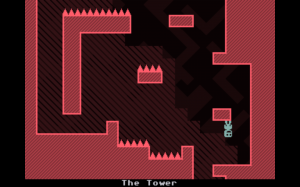 I like how that question was worded. I get to choose any type of influence! I’m going to give them to you chronologically, with the oldest influence first.
I like how that question was worded. I get to choose any type of influence! I’m going to give them to you chronologically, with the oldest influence first.
1. Games.
I would never be where I am if it wasn’t for computer games. I would play for hours on end, and still do some days, and escape from reality, like so many others. I love it. And at the same time, I’m aware that playing games too much can be detrimental to social interactions, which is where real life is lived.
2. Music.
Obviously. An offshoot from playing games, and hanging around tech-savvy people who liked computers. Music was often a joint interest, and some knowledge on how to work a computer was required to get games working back in those days when it all started. And then it became easy to get music programs working. Suddenly, I found myself at home in making music on a computer, and then I was creating music for others. And now I’m making a living off of it. It’s like I just fell into it.
3. Eben Pagan.
He is a well-known self-development teacher and business coach. He got me started on the road to self-knowledge, which is, like, the best thing ever.
4. Terry Cavanagh.
Again, obviously. And also inadvertently. I never knew what was in store, and how my life would change, after making the songs for VVVVVV. He didn’t either. Terry is one of the most straight-up good guys I know.
5. Decker Cunov.
Decker is transformational coach. If Terry’s influence made external things possible for me, Decker’s influence reshaped my insides in a profound way. With him (and his peers) as a powerful catalyst, I had my mind reset completely after a workshop in personal development back in 2012. I now have a completely different view and approach on life, and those who know me before and after can vouch for me changing.
Because of the great things I experienced in this workshop, I am happy to be part of a worldwide network called “Authentic World.” It consists of people who like authenticity and telling the truth, along with developing ourselves and welcoming different sensations. I educated myself in the subtle arts of the practices that Decker uses in his 6-month course held in your home state of Colorado, and now me and my friends do workshops in Europe in the same fashion, to my great excitement and benefit for participants.
If this tickles your curious bone, more info can be found here. We recently did a workshop in Amsterdam, and if you want to be part of the next workshop in Europe, I strongly recommend signing up for the newsletter.
6. Stefan Molyneux.
Stefan is a philosopher and runs the largest philosophy show in the world. He’s got some 60 million downloads of his stuff, and has almost daily videos put up on his youtube channel. His site is www.freedomainradio.com. If Decker Cunov changed my way of connecting with my feelings, Stefan has changed my way of thinking. He’s radically different than most people, and some of what he says is causing some upsets, but the show contains, in my opinion, healthy and important discussions for any decent human being.
11) The success of VVVVVV must have opened a lot of doors for you, but you haven’t composed for many games since. Are you just being choosy about your next major scoring job?
I have enough material to release a new album tomorrow on my hard drive if I could. There are many reasons for not releasing some stuff. I’ve made music for some games that were shelved at the last moment and now need a new game to make sense, and some games have yet to be released.
To be honest I’ve been dividing my time with other things as well. I’ve been traveling the world and exploring different life stuff. (See my answer to question #5!) I also have a few ideas about making my own game, and am doing research.
The game that is brewing in my mind is a social game about telling the truth or lying, and catching other players doing the same thing. I am still looking for a team on this one (coding and graphics to begin with), and it’s preferable if anyone interested has a solid sense of, and can differentiate between, both objective and subjective truths.
That being said, I’m open for music business! If you’ve got that killer game needing some Souleye TLC, don’t hesitate sending me an email. I would love to make some chiptunes for another fun game. Perhaps they will be chiptunes with some metal infused next time…
12) They’re making a live action VVVVVV movie. Who plays Captain Viridian?
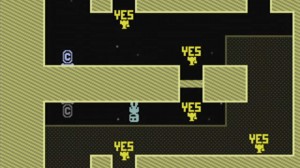 Keanu Reeves. Haha! He took the red pill and became green. Maybe Tom Cruise or Brad Pitt would work as well…let me talk to their agents.
Keanu Reeves. Haha! He took the red pill and became green. Maybe Tom Cruise or Brad Pitt would work as well…let me talk to their agents.
Already confirmed supporting actors are: Christopher Lloyd as Chief Verdigris, Kirsten Dunst as Doctor Violet, Scarlett Johansson as Doctor Victoria, Jim Carrey as Officer Vermilion, and Jim Parsons as Professor Vitellary.
13) Which Mega Man boss has the stage music?
My experiences aren’t THAT in-depth with the series. I’ve played through Mega Man 2 from start to finish, but that was a long time ago.
14) What has your experience been like with fans of your music? I have to assume it’s been positive, as you’ve collected many of their remixes and given them official release on the PPPPPPowerup album.
Oh, the people have been great. Just great. The fans are really nice to me. It’s one of the great things about being in this line of work; you get paid not only in money, but also in little internet hearts! I love my fans. <3 One of the most touching letters came from a guy who had been suffering from depression for months and months, and then he started listening to PPPPPP, and, I don’t know, subconsciously caught on to the subliminal messages that I would never admit to putting in there, because they’re not in there, and anyone who says they are in there haven’t played some of the songs backwards yet because that’s how you really get to…
Wait…I’ve said too much about those subliminal messages. They aren’t there…
Okay, enough with the joking. He claimed that my music helped him out of his depression in a very real way, and was very nice and thankful. His message moved me to tears. When I get feedback like that I sometimes feel like the effect the music had on him alone would have made it worth making the music.
Music is powerful.
15) Name one song that makes you want to turn the radio off every time you hear it.
Oh… I know where this is going. If I bring a song up like that to a friend, they’ll instantly start singing it back to me…
Haha! Well okay, it doesn’t matter. I’ll look forward to getting Rick-rolled with the song in the future.
That which you resists, persists, so… I’m going with a Swedish song called “Hej Monika.”
16) Go back in time and give one piece of life advice to Magnus Pålsson, age 10.
Trust yourself. Find out what your values are, what feels good. Learn how people make meaning out of words. And if the world seems to be doing it wrong, and you don’t quite understand it even if you really try, most likely they’re all doing their best with what they know and the only thing you can do is learn the ways they were taught to do it so that you one day can untangle those webs from yourself and others.
17) Go forward in time and give one piece of life advice to Magnus Pålsson, age 100.
Hey dude, I didn’t think you’d make it this long! But it’s time to face the fact: it’s near the end.
After you’ve said your goodbyes to your, well, to be honest, rather obscenely large family, I want you to have a good time and not fear death. I hear that hard drugs are effective in achieving that.
They’re also addictive and ruin your life in the long run, but there’s no long run anymore, so it’s time to find out what you’ve been missing! Full speed ahead! Geronimo!
On a more serious note though, what I believe is one of the best ways to go is to be in deep connection with your loved ones. Ask them to spend a lot of time with you during those last moments. Knowing that you’ve already imparted what you’ve learned about life with them, and that they’ll be all right. All what we got left is to be with each other, and stay connected for as long as possible.
But then again, that’s true for every moment in life, so why save that piece of advice for later?
18) If you were physically transported into VVVVVV, taking Viridian’s place, how far would you make it before dying?
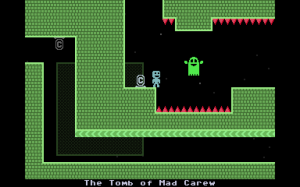 I would die to the first thing that could kill me, because I’d be in total disbelief and want to see how it feels to die and respawn. If I respawned, I’d be yelling at the fourth wall a lot about wanting to be let out of this Groundhog Day-like spiked-hell existence, or maybe hit on Victoria to create some mini-Vs.
I would die to the first thing that could kill me, because I’d be in total disbelief and want to see how it feels to die and respawn. If I respawned, I’d be yelling at the fourth wall a lot about wanting to be let out of this Groundhog Day-like spiked-hell existence, or maybe hit on Victoria to create some mini-Vs.
19) Who was or is the handsomest world leader?
Bill Clinton. I’m not that big into checking out political leaders but Bill is definitely charismatic. I even listened to his biography audiobook, read by himself.
20) Your star has risen to the point that every major gaming company on Earth is offering you full creative control over the soundtrack to the next installment of any franchise you like. Which series of games do you give the SoulEye stamp to?
Good question. I went through a bunch of games in my mind before singling out a series, and the honor would go to…
Drumroll…
The Street Fighter series. I think I could really do it justice, legacy-wise, and bring something new and fresh to the series. A bit ironically perhaps, as some of PPPPPP (and therefore MMMMMM) has influences from Street Fighter II. But there you go!
BONUS: Say anything to our readers that you haven’t gotten to say above!
I’m going to go out on a limb and give you a poem on life I wrote two years ago.
As I lay my heart to bare
plain for all to see
the pain I carried deep within
is shared, to more than meThe walls containing my fragile heart
came tumbling down, they broke apart
the life I thought was not for me
revealed itself, and it was freeConnected, I would sense the pain
of life, love, death, my sadness
and for the first time in my life
I made sense of all the madnessThe cross I now have to bear
is holding pain, for all who’s dear
I want to ease your heavy burden
shoulder all your fear
staying present, to my purpose
I am with you here.With strength and courage to be weak
I will shelter all the meek
Let me shield you from your pain
I don’t mind, it’s my gainI must die, it is my path
from this earth I’m torn
And in knowing but this simple fact
my true love is reborn
